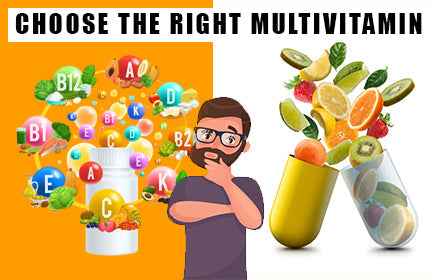The Association Between a Whole Foods, Vegan Diet and Diabetes
Eating whole, pure, and unprocessed food is a great way to combat many ailments. Therefore, it seems somewhat paradoxical that medical doctors prescribe medication first, without considering the power of a well-balanced, nutritious diet. Because of the how the American medical industry was started in the early 1990s, the American Medical Association (AMA) weaned medical doctors away from natural medicine, naturopathy, and homeopathy to a pharmaceutical drug, through JD Rockefeller’s influence in the medical and pharmaceutical industry [1].
Then, in the 1920s, the AMA removed all nutritional education from medical colleges and promoted doctors to prescribe chemical-based medications that were designed to alleviate symptoms, rather than rectify the underlying issue [1].
Consequentially, many of today’s conventional physicians are not aware of the power of nutrition, but things are changing. Instead, there is an abundance of doctors who are not prescribing pharmaceuticals when they are not essential and are promoting a proper diet. Many of these individuals choose to educate themselves on their own by reading the science and literature surrounding nutrition. Even patients are beginning to notice the importance of nutrition.
Concerning the Medical Industry, Self-Education Is Vital
Arnold Seymour Relman was an American internist and professor of medicine and social medicine at Harvard Medical School and an editor of the New England Journal of Medicine [2].
In 2002, Relman published an article entitled “America’s other drug problem: how the drug industry distorts medicine and politics” [3].
Within the publication, Relman stated, “The medical profession is being bought by the pharmaceutical industry, not only in terms of the practice of medicine but also in terms of teaching and research … The academic institutions of this country are allowing themselves to be the paid agents of the pharmaceutical industry. I think it's disgraceful” [4].
In 2018, Dr. Asseem Malhotra, a well-known doctor in Britain, stated that modern medical education had created an epidemic of misinformed doctors [5].
Moreover, Dr. Marcia Angell, a physician and longtime Editor-in-Chief of The New England Medical Journal (NEMJ), considered one of the most prestigious peer-reviewed medical journals in the world, has said, “It is simply no longer possible to believe much of the clinical research that is published, or to rely on the judgment of trusted physicians or authoritative medical guidelines. I take no pleasure in this conclusion, which I reached slowly and reluctantly over my two decades as an editor of The New England Journal of Medicine” [6].
Diet and Type-2 Diabetes
Type-2 diabetes is probably one of the most manageable diseases with a proper diet, but because of the pharmaceutical industry’s enormous influence on the medical sector and education, doctor’s lack the nutritional knowledge necessary to combat the issue naturally. This information issue has contributed to the prediabetes and diabetes of more than 100 million Americans [7].
Nevertheless, there is a vast amount of published scientific literature available for self-education.
In a 2016 study, researchers examined the association of an overall plant-based diet and hypothesized healthful and unhealthful versions of a plant-based diet with type-2 diabetes in three prospective cohort studies in the United States [8]. The study involved more than 200,000 male and female participants across the United States, followed them for more than twenty years, and collected information on their diet, lifestyle, medical history, and new disease diagnosis.
The researchers found that having a diet that emphasized plant foods and was low in animal foods was associated with a reduction of about 20% in the risks of diabetes. Further, the consumption of a plant-based diet that emphasized specifically healthy plant foods was associated with a more considerable decrease (34%) in diabetes risk, while consumption of a plant-based diet high in less healthy plant foods (e.g., sugar) was associated with a 16% increased diabetes risk [8].
The researchers stated this data suggests that increasing intake of healthy plant foods while moderately reducing consumption of some animal foods, especially red and processed meats, may be beneficial for diabetes prevention [8].
In a 2014 study, researchers investigated the relationship of types of dietary protein, e.g., total, animal, and plant protein, and the incidence of type-2 diabetes [9]. The analysis included 26,253 participants. The researchers found that a diet high in total and animal protein was associated with an increased risk of type-2 diabetes [9].
In a 2009 study, researchers examined the prevalence of type-2 diabetes in people following various kings of vegetarian diets compared with that in nonvegetarians [10]. The study population comprised of 22,434 men and 38,469 women, and the individual’s type of diet was categorized based on a food-frequency questionnaire [10].
The lowest average BMI was in vegans (23.6 kg/m(2)) and incrementally higher in lacto-ovo vegetarians (25.7 kg/m(2)), pesco-vegetarians (26.3 kg/m(2)), semi-vegetarians (27.3 kg/m(2)), and nonvegetarians (28.8 kg/m(2)) [10].
Further, the prevalence of type-2 diabetes increased from 2.9% in vegans to 7.6% in nonvegetarians, with the remaining three diets being in-between, in the same order as the BMI measurements [10].
The researchers concluded the 5-unit BMI difference between vegans and nonvegetarians indicated the substantial of vegetarianism to protect against obesity and increased conformity to a purely vegan diet protected against the risk of type-2 diabetes [10].
In a 2008 study, researchers examined the relationship between meat intake and diabetes occurrence in adults [11]. The researchers found long-term adherence (over a 17-year interval) to a diet that included at least weekly meat intake was associated with a 74% increase in odds of diabetes compared to long-term adherence to a vegetarian diet [11].
Conclusion
Based on this information, a plant-based diet based solely on whole foods can be life-changing. As studies continue to be published showing an association between meat consumption, diabetes, and obesity, perhaps people will integrate a lower-meat diet into their lifestyles.
Still, I do not expect this information to persuade individuals from eating meat; even after conducting this research, I will still continue to eat meat. However, I would recommend increasing the prevalence of whole foods and vegetables in one’s diet and being more conscious of one’s meat intake.
If you have questions about any of our products, check out Healthmasters’ Basic Healthy Lifestyle Kit and call our office at 800.726.1834.
References:
[1] https://www.naturalnews.com/008845_American_Medical_Association_the_AMA.html
[2] https://en.wikipedia.org/wiki/Arnold_S._Relman
[3] https://www.ncbi.nlm.nih.gov/pubmed/12561803
[4] https://www.ncbi.nlm.nih.gov/pubmed/12775621
[6] https://www.ncbi.nlm.nih.gov/pubmed/21048987
[7] https://www.cdc.gov/media/releases/2017/p0718-diabetes-report.html
[8] https://www.ncbi.nlm.nih.gov/pubmed/27299701
[9] https://www.ncbi.nlm.nih.gov/pubmed/24722499

